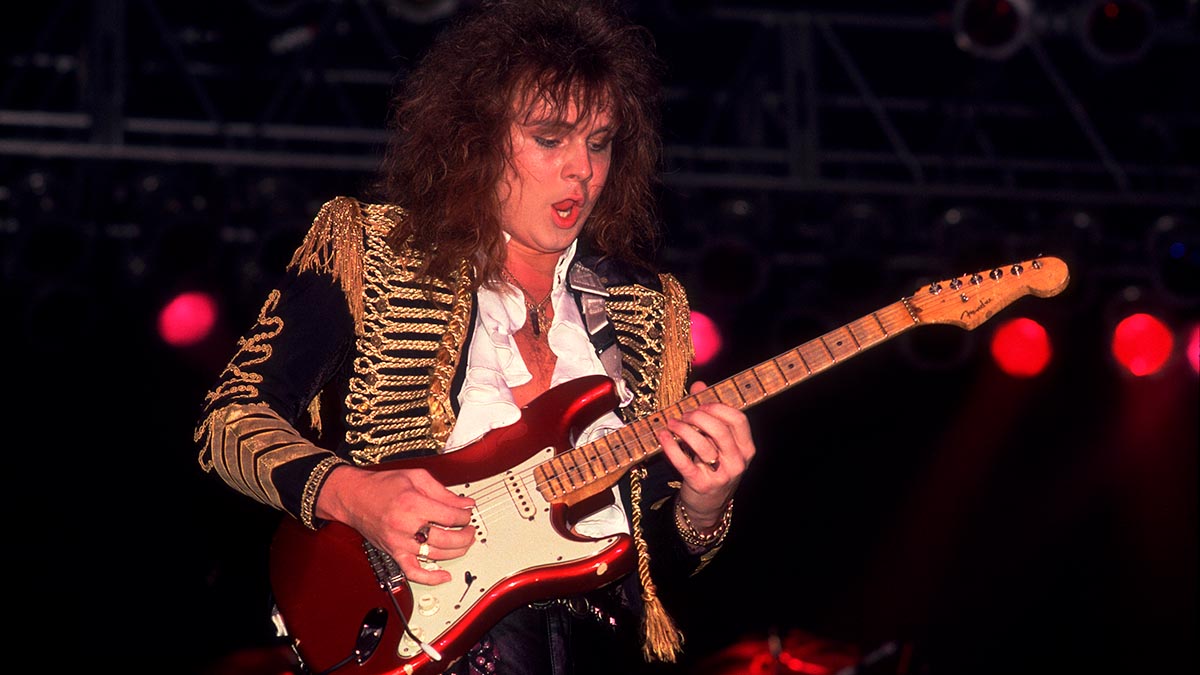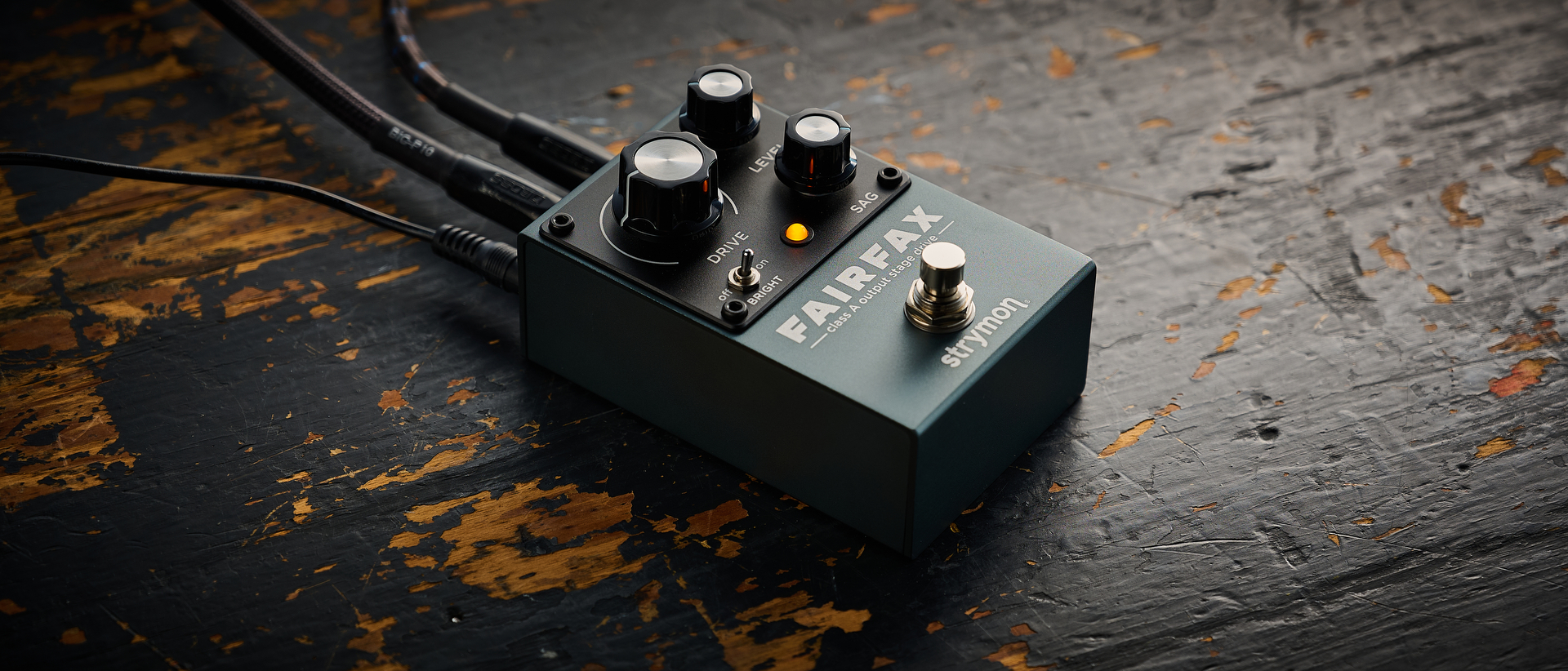“Even Eddie Van Halen – god bless him, I love him – was mainly pentatonic. I was radically different”: Yngwie Malmsteen on Rising Force and the introduction of a neoclassical shred icon
Breaking out of Alcatrazz and releasing Rising Force in 1984, a young Yngwie Malmsteen took us all through a supernova of virtuosity that changed guitar forever

All the latest guitar news, interviews, lessons, reviews, deals and more, direct to your inbox!
You are now subscribed
Your newsletter sign-up was successful
Before there was an Yngwie Malmsteen, players like Ritchie Blackmore, Brian May and Uli Jon Roth had been experimenting with classical-inspired ideas in the context of hard rock, although it’s safe to say they remained very much rooted in the pentatonic blues.
When the Swedish maverick unleashed his debut in 1984, however, it was unlike anything anyone had ever heard, and it would go on to kickstart a whole movement of guitarists dedicating their lives to neoclassical sounds.
After brief stints in Steeler and Alcatrazz following his move to the U.S., Malmsteen wrapped up the recordings for Rising Force just before his 21st birthday. The guitar world was never the same again.
What do you remember about making your solo debut?
“I was still in Alcatrazz, but the label said we needed to do a solo album for Japan only. I called it Rising Force, which is the same name as a band I formed in 1978 – but that wasn’t a band; it was me writing everything. Every drummer and bassist from Sweden was in it at some point! I got Barrie Barlow from Jethro Tull on drums, a keyboard player [Jens Johansson] and that was it.
“We started recording in a mobile truck studio, like bands did in the old days. It happened to be Stevie Wonder’s! It was all done quickly before a tour. Whenever I had a day off, I’d fly back and track a few solos. In July there was a big hoopla in the Alcatrazz camp and I decided to leave that shit!”
What happened next?
All the latest guitar news, interviews, lessons, reviews, deals and more, direct to your inbox!
“I started working on Marching Out [1985], which was supposed to be the first proper release. But you could still buy import records in America and so many people went to the stores to order Rising Force that it hit the charts and took on a life of its own. There was no promotion, no radio, nothing. The label were going, ‘Fuck, we have to release this worldwide!’ I even got a Grammy nomination for it. I went on the road in 1985 with two records to promote.”
What people don’t understand about Strats is that Leo Fender sold the company to CBS in 1965, but it stayed at the same factory for another decade, so any Strat built up until 1975 will actually be really good
Was the Duck your main Stratocaster on the record, presumably fed into a vintage Marshall plexi?
“Yeah, the Duck and another with a rosewood fingerboard in the same finish. There was also a natural model, too. I had a few by that point, all early Seventies models. What people don’t understand about Strats is that Leo Fender sold the company to CBS in 1965, but it stayed at the same factory for another decade, so any Strat built up until 1975 will actually be really good.
“It started going downhill around the late Seventies. People think Seventies Fenders are bad, but that’s not actually correct. The amp was a vintage plexi, which I still use. On my last tour, I had 56 heads on stage... 56!”
What were you using to push the guitar amp? Was it the DOD Overdrive Preamp 250 that inspired your own signature DOD YJM308 pedal?
“That’s exactly it. I bought that first DOD in Sweden back in 1978 and put it in front of a Marshall. That was my sound from until 1989, which is when I toured the Soviet Union. Somebody stole my pedal, but luckily nothing else. I had some overdrives built that were based on the one I lost. I have some really exciting news coming up, but I can’t say just yet…”
I was classically trained early on, and even though I was running through Marshall stacks and throwing my guitar around, I was playing arpeggios, linear scales, diminished and harmonic minor
And how about the nylon-string guitar you used on Black Star, Evil Eye and Farewell?
“It was just a cheap Aria Pro II thing. I think it was only worth around $120. I saw it lying around, so it ended up on a few tracks.”
Far Beyond the Sun is one of your most famous compositions. You have to play it at every show!
“And I love to play it! That one was written for the album, unlike some of the others, which were composed back in Sweden. I came up with it on tour and put the ideas on this little recorder I had. It’s not a challenge, but I find it exciting to perform because there are a lot of big moments.
"There’s a rule in classical composition, especially for small ensembles like string quartets, where you don’t double up notes. You never let the viola player, violins and cellist play the same note – it’s a waste of harmony. So if you listen to the guitar against the bass and keyboards, it’s all extremely wide with thirds and fifths and so on.”
The intro to Evil Eye comes from Johann Krieger’s Bourree, which also inspired Paul McCartney on Blackbird and Jimmy Page on Stairway to Heaven.
“I remember hearing it as a kid. It’s something I learned on piano to understand counterpoint, like an exercise. But the way I took influence was extremely unusual. I was classically trained early on, and even though I was running through Marshall stacks and throwing my guitar around, I was playing arpeggios, linear scales, diminished and harmonic minor.
“Everyone was going, ‘What the fuck is this?!’ Even Eddie Van Halen – god bless him, I fuckin’ love him – was mainly pentatonic. I was radically different. What’s funny about Evil Eye is that there’s a staccato part that sounds like a Rush thing, but I actually took the rhythm from White Christmas! I used to do silly stuff like that. Music is a funny little medium. You can do crazy things.”
Amit has been writing for titles like Total Guitar, MusicRadar and Guitar World for over a decade and counts Richie Kotzen, Guthrie Govan and Jeff Beck among his primary influences as a guitar player. He's worked for magazines like Kerrang!, Metal Hammer, Classic Rock, Prog, Record Collector, Planet Rock, Rhythm and Bass Player, as well as newspapers like Metro and The Independent, interviewing everyone from Ozzy Osbourne and Lemmy to Slash and Jimmy Page, and once even traded solos with a member of Slayer on a track released internationally. As a session guitarist, he's played alongside members of Judas Priest and Uriah Heep in London ensemble Metalworks, as well as handled lead guitars for legends like Glen Matlock (Sex Pistols, The Faces) and Stu Hamm (Steve Vai, Joe Satriani, G3).



